David Cameron channelled Michael Heseltine – not Tony Blair – with his centrist speech
Through his political sons, Cameron and Osborne, Heseltine has achieved his dream of becoming leader, if only by proxy

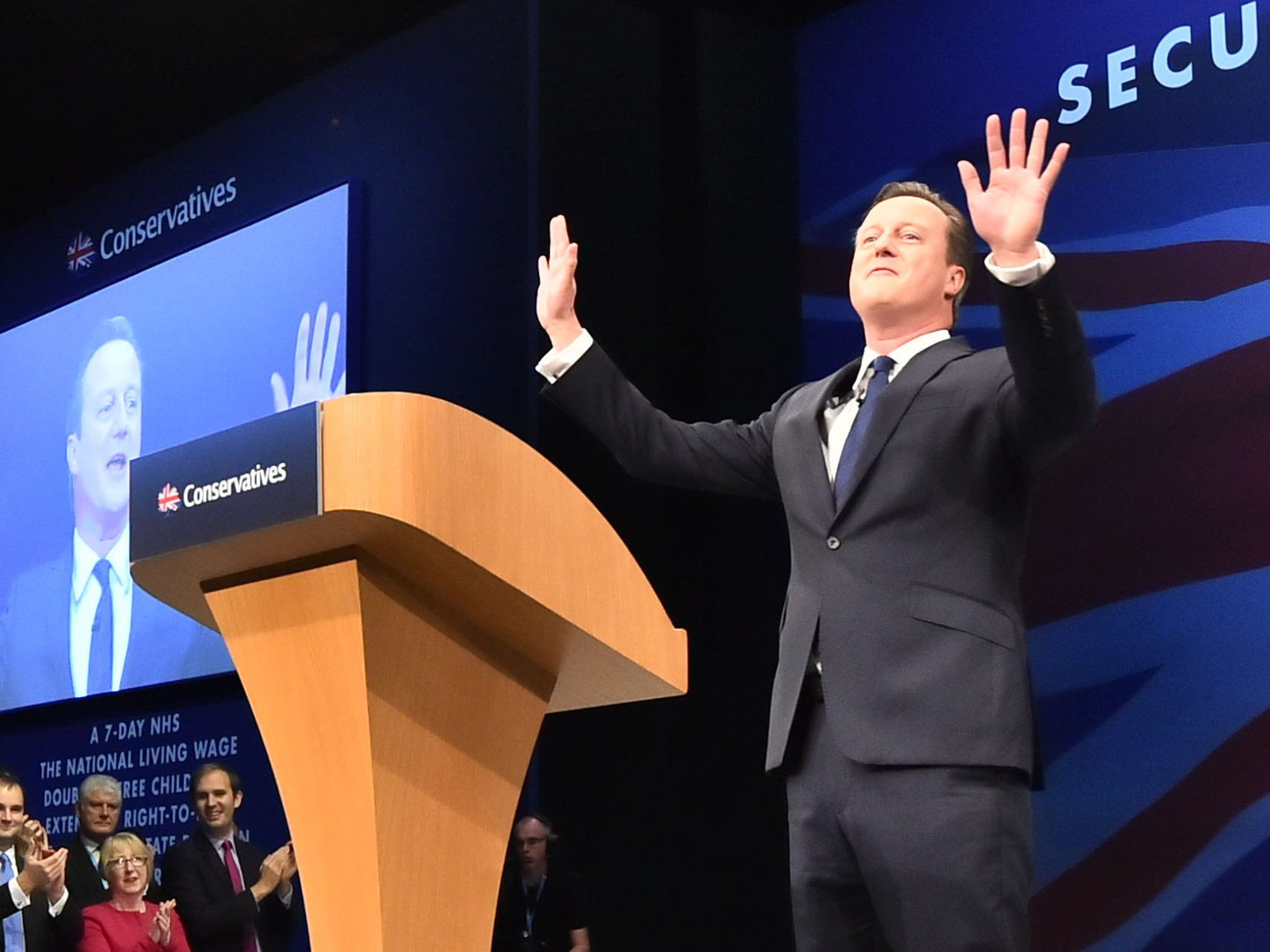
When David Cameron delivered his first party conference speech as Prime Minister in a Conservative majority government last week, he declared he does not have the “luxury of unlimited time” and is in a hurry to achieve things in his second and final term.
By standing down before polling day in 2020, he can ensure that – barring being forced to resign for being on the wrong side of the EU referendum – he can defy the rule that all political careers end in failure. Going out with the crowds wanting more, as an adviser to Tony Blair wrote in a 2006 memo of how that PM should spend his final months in office, seems also to be Cameron’s game plan.
This PM’s speech was so centrist it prompted many, including the former Tory MP Louise Mensch, to invoke that old Cameron wish-fulfilment spell that he was the “heir to Blair”. Yet is he? The most moving passages of this 6,000-plus word speech were on British identity and immigration – which had the dual effect of being a harbinger for the daughter of Bangladeshi migrants to win The Great British Bake Off later that day and taking all the air out of Theresa May’s over-cooked soufflé of a leadership bid, after she had warned on the previous day that immigration risked undermining a cohesive society.
Unburdened of the need to ever again win an election, Cameron told his own party that he wanted Britain to be the “proudest multi-racial democracy on earth”.
This was reminiscent not of Blair but of Michael Heseltine. In 1981, after visiting the scene of the Toxteth riots, Heseltine told the Tory conference in Blackpool: “What talk of equality of opportunity? What does it actually mean, those words in the inner cities today? What does it mean to the black communities? … Let this party’s position be absolutely clear, they are British. They live here. They vote here.”
George Osborne’s speech last Monday, too, had Heseltinian overtones: the “devolution revolution” and push for infrastructure were all out of the former cabinet minister’s playbook. And what sweet icing on the cake for Heseltine, who has been working closely with the Chancellor at the Treasury on devolution for the past few years, that Osborne’s big policy announcement, to allow councils to set their own business rates, should undo the work of Margaret Thatcher in 1990.
In the decade since Cameron first addressed party conference as a youthful leadership candidate, he and Osborne have been seen as the arch-modernisers trying to emulate the success, progressive politics and triangulation of Blair. In one sense they are. But after last week’s conference in Manchester, it is clear that they are less the heirs to Blair and more the sons of Heseltine.
Heseltine was, of course, one of the lost leaders of British politics – alongside Denis Healey and Geoffrey Howe, whose deaths in the last few days reminded Westminster of what might have been. Heseltine never secured the Tory crown because he tried too hard to get it. But more than 30 years ago he was ahead of his time. Through his political sons, Cameron and Osborne, Heseltine has achieved his dream of becoming leader, if only by proxy.
In doing so, he has also defied the rule: political careers sometimes do end in failure, but they do not stop at the leaving of office, only in the death of ideas.
The eyes have it
David Cameron’s speech was also memorable for his line that “Britain and Twitter are not the same thing” – that, on social media, Ed Miliband seemed to have won the general election before the public vote showed he had roundly lost.
The PM is pinning his hopes on Jeremy Corbyn’s popularity being limited to Twitter. He is also right that the rudeness, and threats of rape on Twitter do not reflect British society. Our everyday lives are closer to the warmth and courtesy of the Bake Off tent, because human interaction generally has an inbuilt resistance to face-to-face aggression. Hatred is easy when the aggressors cannot see the eyes of their victims.
At the entrance to the conference secure zone, the protesters who shouted “Tory scum”, spat in the faces of journalists and threw eggs at young Conservatives in suits, felt emboldened because their lanyard-wearing quarry walked quickly past them before disappearing into the security tent.
In fact, these were only a hard core of protesters – many of them did not engage in spitting or egg-throwing. I stopped to talk to one woman and we had a reasonable discussion about cuts to tax credits. And I noticed that when there was a long queue to get through what Boris Johnson called the “Khyber Pass”, meaning Tory activists and protesters had to share the same space for longer than a few seconds, forcing us all to look into each other’s eyes, the atmosphere was much calmer.
Words to the wise
Theresa May’s leadership ambitions may have been seriously undermined by her speech, but the conference showed no shortage of women who can lead the Conservative Party, including Nicky Morgan, Justine Greening and Priti Patel.
The conference also cemented the reputation of Jess Cunniffe, the Prime Minister’s new 29-year-old speechwriter who replaced another woman, Clare Foges. Cunniffe used to work for Baroness Warsi when she was at the Foreign Office, with the former minister describing her as the “best in the business”. How soon will it be before a star speechwriter is penning the words for a female leader?
Goodbye to all that…
Looking back at the 2015 conference season, I am sure it will go down as one of the classics, as both Labour and the Conservatives stand at the crossroads, wrestling with their future. I have reached my own fork in the road, as this was my last season as Political Editor of this newspaper after seven years – although I will carry on writing this column.
Twitter: @janemerrick23

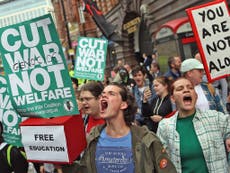
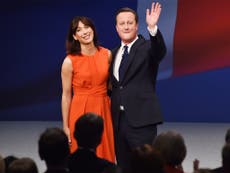
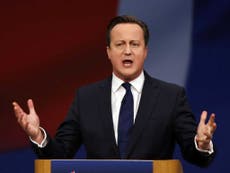
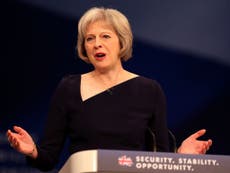
Join our commenting forum
Join thought-provoking conversations, follow other Independent readers and see their replies